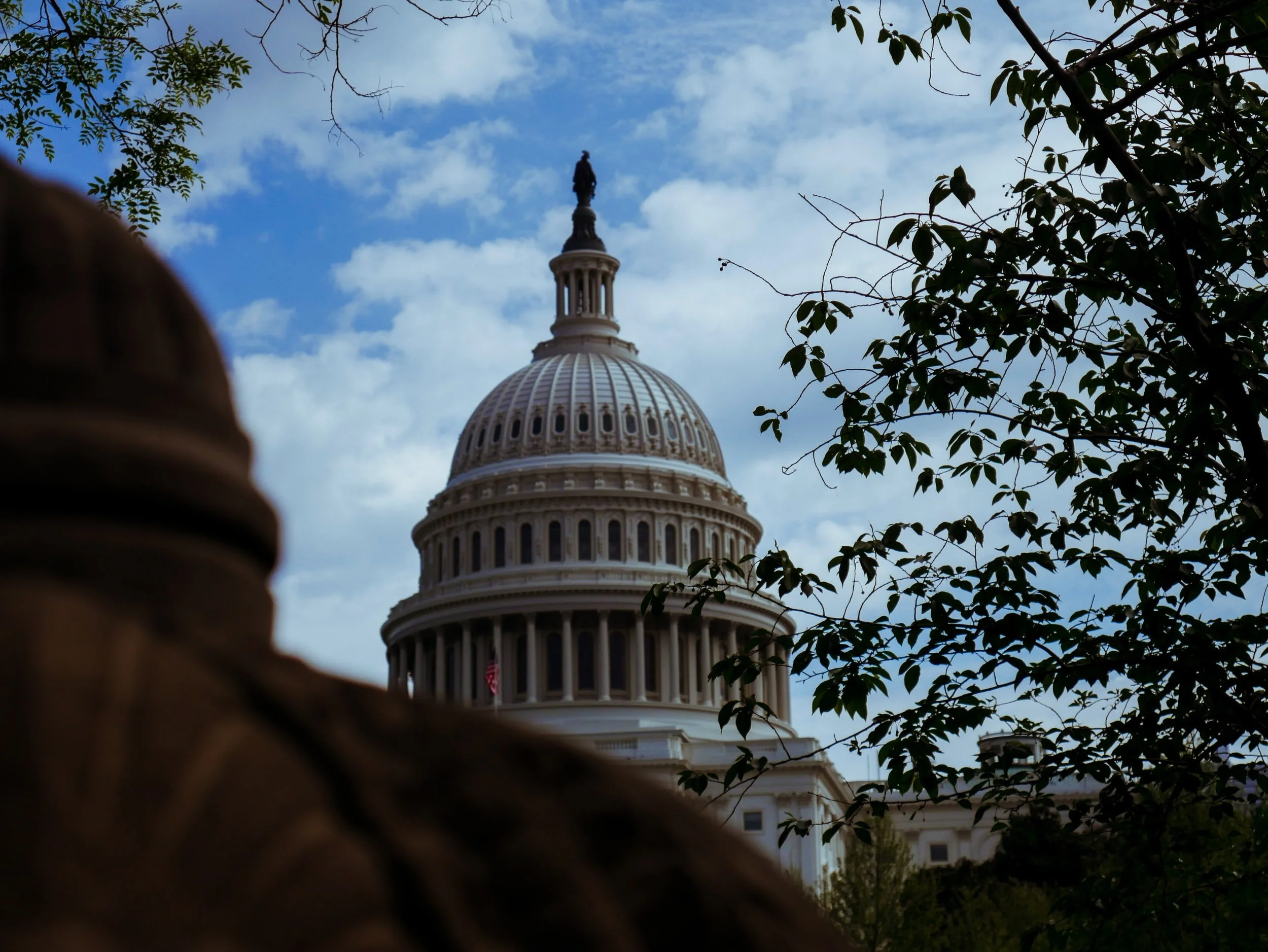In 2025, TechCongress placed 14 skilled technologists on Capitol Hill as Congressional Innovation Fellows to advise congressional offices and committees on technology policy. This year’s fellows have gone on to support legislation in some of the most critical issue areas facing Congress, ranging from the responsible deployment of generative artificial intelligence (AI) technology to age verification legislation and national cybersecurity infrastructure. Coming on the heels of this momentum, TechCongress is excited to share that applications for our 2026 Congressional Innovation fellowships are open. For this forthcoming fellowship cycle, we’re aiming to recruit 20 experts to serve both Democratic and Republican offices—with a twist.
Technology continues to intersect with a suite of issue areas throughout the legislative branch. The rapid development of AI presents new opportunities to strengthen American institutions and services, yet federal and state agencies continue to grapple with legislation that is needed to promote safe and inclusive access to these tools. Cybersecurity concerns and fragile data infrastructures threaten national security and privacy laws, issues that increasingly confront everyday Americans. Moreover, emerging technology has opened new frontiers where robust technical expertise is needed to reinforce responsible legislation on Capitol Hill.
TechCongress is therefore excited to share that we are expanding our fellow profiles for our 2026 Congressional Innovation Fellowships beyond the standard definition of “technologist”. We’re now also welcoming applications from experts in digital service delivery, climate technology, criminal justice and space science.
These new verticals come at a time when federal, state and local governments are navigating the implications of emerging technology for their systems and constituents. TechCongress fellows are optimally positioned to supply this heightened demand for specialized expertise. For example, our fellows have helped strengthen capacities on Capitol Hill by:
Helping lead and co-organize numerous congressional hearings, such as a hearing about the potential threats to national security posed by advanced and emerging technologies, a hearing on US investment in semiconductor manufacturing with the CEOs of Intel and Micron, and the Snapchat, Tik Tok, YouTube Commerce Hearing about the impact their platforms have on children.
Creating an e-Hopper to electronically submit legislation to Congress and Quill, a digital signature tool that is now fully operational in the House.
Supporting the establishment of a permanent House Digital Service in the House of Representatives.
Supporting Senator Thune’s AI Research, Innovation and Accountability Act of 2023, a bipartisan collaboration with Senator Klobuchar, which would require companies to assess the impacts of AI and self-certify more risky safety.
Contributing to The National Secure Data Service Act, signed into law as part of the CHIPS and Science Act, which creates a secure system for federal agencies to share data while protecting privacy.
At the outset of their fellowships, Congressional Innovation Fellows attend a 3-week orientation hosted by TechCongress where they learn about the legislative branch, its processes, the distinctions between the House and Senate, and the many services and workflows they will provide and support throughout their terms. Successful completion of orientation will pave the way for their interviews with the congressional offices and committees they may wish to serve—leading to their eventual placements in Congress. To date, TechCongress has placed 123 fellows on Capitol Hill, 30 of whom have converted to full-time Hill staffers, while the remainder advanced to careers in the public and private sectors. The integration of new verticals with our fellowship programming will open the door to additional adjacencies in technology expertise that can help guide legislation at the top of congressional agendas throughout and beyond 2026.
We’re hosting a fellowship informational call at the end of June (check out the recording of our first informational call here), in addition to a recruitment panel with TechCongress alumni and current fellows on June 17. We encourage you to RSVP and learn about the application process. You can also read our fellows’ testimonials, frequently asked questions, and explore our 2025 fellows’ placements. Whether you’re a prospective fellow, civic technologist, or someone interested in the work we do, you can subscribe to our newsletter and follow us on X and LinkedIn for the latest news and updates from our fellowship programs and the public interest technology space.

















